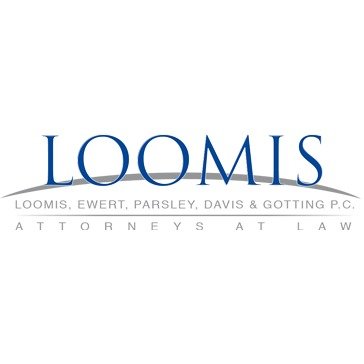Best ADR Mediation & Arbitration Lawyers in Lansing
Share your needs with us, get contacted by law firms.
Free. Takes 2 min.
List of the best lawyers in Lansing, United States
About ADR Mediation & Arbitration Law in Lansing, United States:
Alternative Dispute Resolution (ADR), which includes mediation and arbitration, is commonly used in Lansing, Michigan to resolve a wide array of civil disputes. ADR provides a cost-effective and efficient way to resolve conflicts outside the traditional court system. In mediation, a neutral third party helps the disputing parties to reach a mutually satisfactory resolution. On the other hand, arbitration involves the intervention of a neutral third party who makes a decision after considering arguments and evidence from both parties.
Why You May Need a Lawyer:
While ADR may seem straightforward, complexities can arise that may necessitate legal representation. You may need a lawyer if you are drafting an arbitration agreement, presenting your case in an arbitration hearing, or challenging an arbitration award in court. In mediation, a lawyer can guide you in preparing for the session, provide advice on your rights, and ensure that any settlement agreement serves your best interests.
Local Laws Overview:
In Lansing, U.S., the general principles of Michigan's Mediation and Arbitration laws, as well as the Uniform Arbitration Act apply. Agreements to arbitrate are generally enforceable unless found to be unconscionable. Under Michigan’s Court Rules, mediation involves a process in which a neutral mediator facilitates communication between parties to promote reconciliation, settlement, or better understanding. Arbitration decisions are binding, and both court-ordered and contractual arbitration must adhere to basic due process provisions.
Frequently Asked Questions:
1. Can I appeal an arbitration decision?
In most cases, arbitrations are binding and cannot be appealed. However, under certain circumstances like fraud or denial of due process, a court may overturn an arbitration decision.
2. What is the difference between arbitration and mediation?
Mediation is a facilitated negotiation with the help of a neutral third party. The mediator doesn't decide the outcome, but helps the parties communicate so they can try to resolve the dispute themselves. Arbitration, on the other hand, is more akin to a court process with a neutral third party making a binding decision after hearing evidence and arguments.
3. Can a lawyer represent me in mediation or arbitration?
Yes, you can be represented by a lawyer during both mediation and arbitration proceedings.
4. How long does the ADR process usually take?
The duration of the process varies greatly depending on the complexity of the dispute and the willingness of the parties to cooperate, but ADR processes are typically much quicker than litigation.
5. Is the ADR process confidential?
In general, the ADR process is confidential. Information shared during mediation and arbitration can't be used later in court, and the mediator/arbitrator cannot be forced to testify about what occurred during the ADR session.
Additional Resources:
You can visit the State Bar of Michigan website or the American Arbitration Association website for more information on ADR. Local organizations like the Lansing Mediation Center also provide resources and services related to ADR.
Next Steps:
If you require legal assistance in ADR Mediation & Arbitration, seek legal counsel experienced in this field. An experienced lawyer could help protect your interests and advocate on your behalf during the ADR process. Be sure to prepare all the relevant documents and clearly communicate your goals for the resolution of the dispute.
Lawzana helps you find the best lawyers and law firms in Lansing through a curated and pre-screened list of qualified legal professionals. Our platform offers rankings and detailed profiles of attorneys and law firms, allowing you to compare based on practice areas, including ADR Mediation & Arbitration , experience, and client feedback.
Each profile includes a description of the firm's areas of practice, client reviews, team members and partners, year of establishment, spoken languages, office locations, contact information, social media presence, and any published articles or resources. Most firms on our platform speak English and are experienced in both local and international legal matters.
Get a quote from top-rated law firms in Lansing, United States — quickly, securely, and without unnecessary hassle.
Disclaimer:
The information provided on this page is for general informational purposes only and does not constitute legal advice. While we strive to ensure the accuracy and relevance of the content, legal information may change over time, and interpretations of the law can vary. You should always consult with a qualified legal professional for advice specific to your situation.
We disclaim all liability for actions taken or not taken based on the content of this page. If you believe any information is incorrect or outdated, please contact us, and we will review and update it where appropriate.








